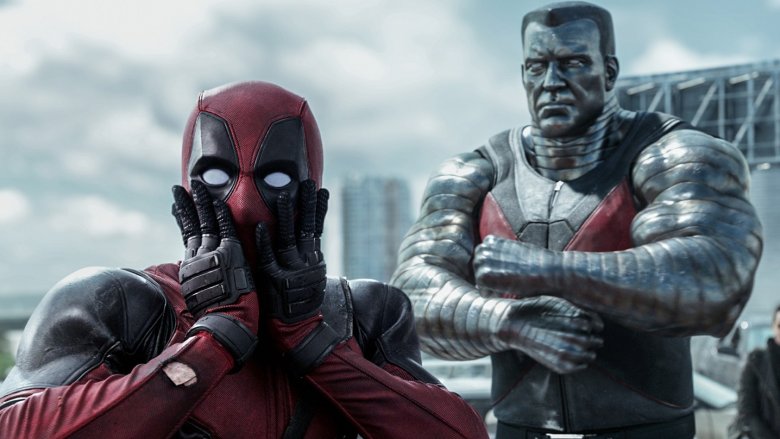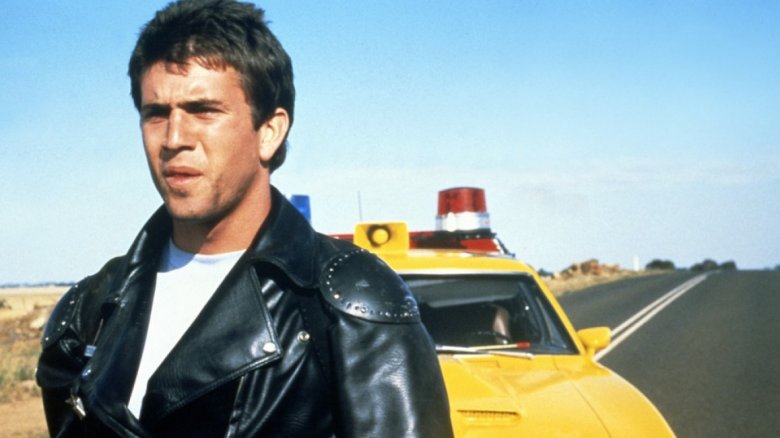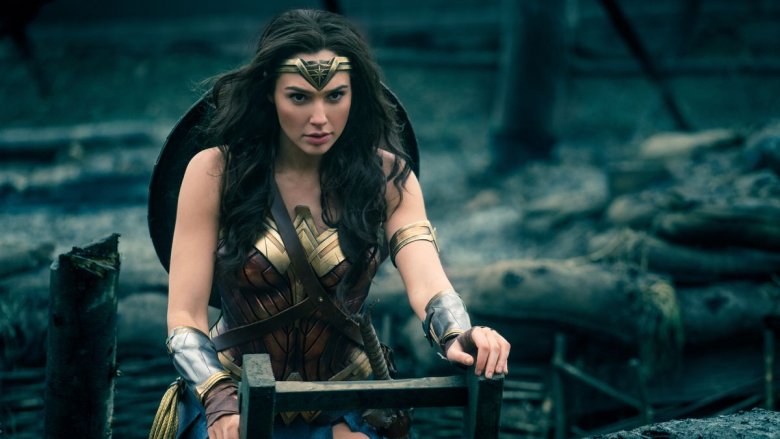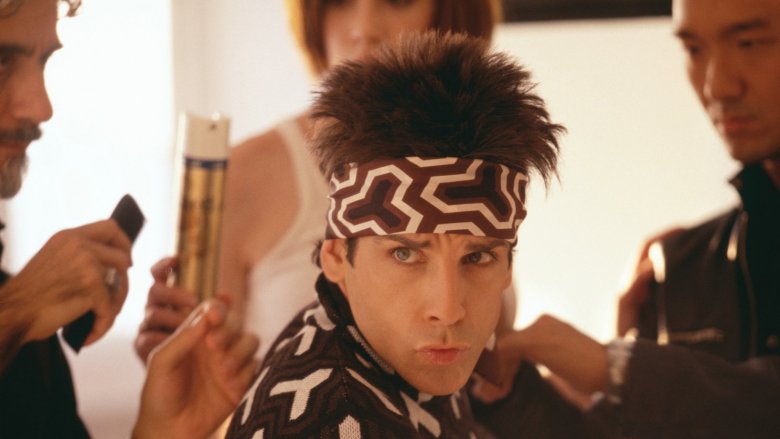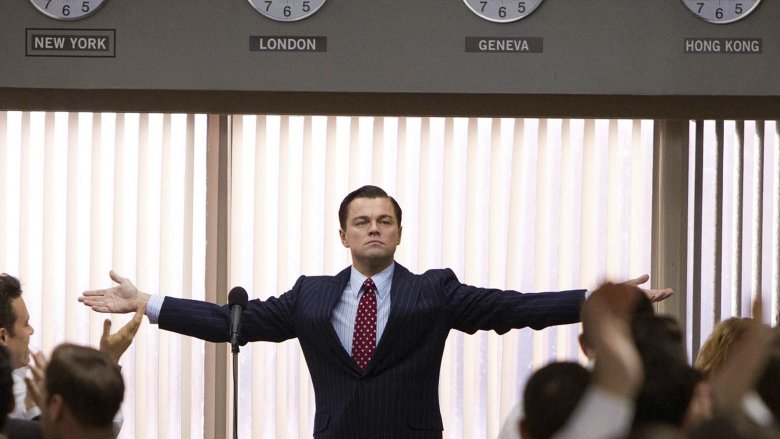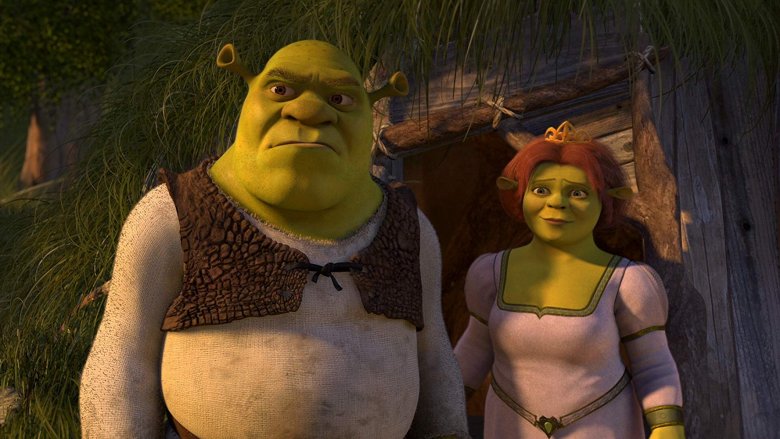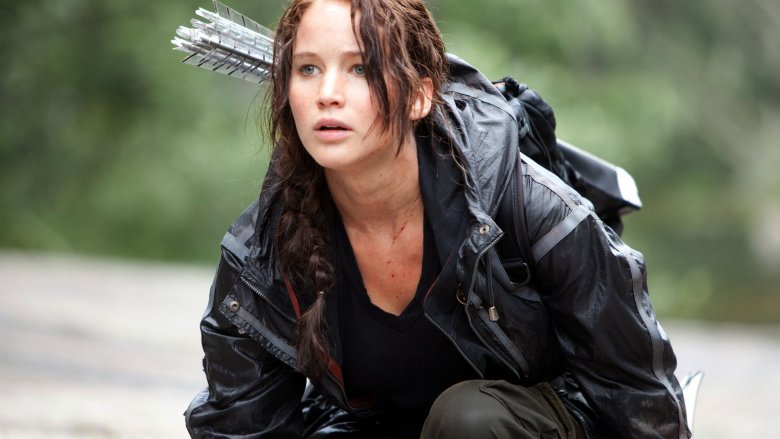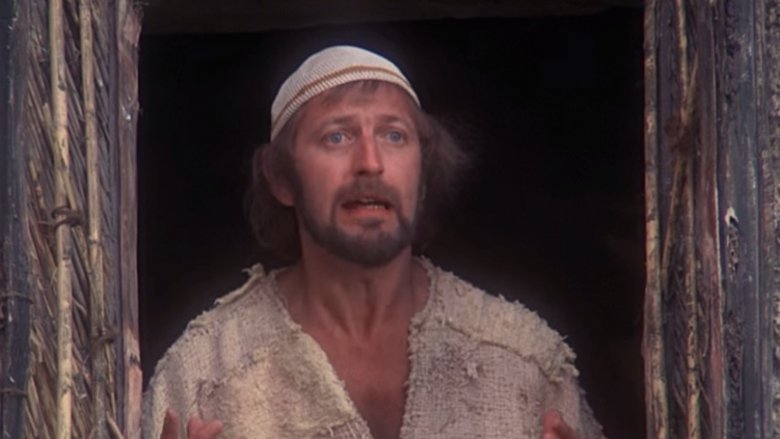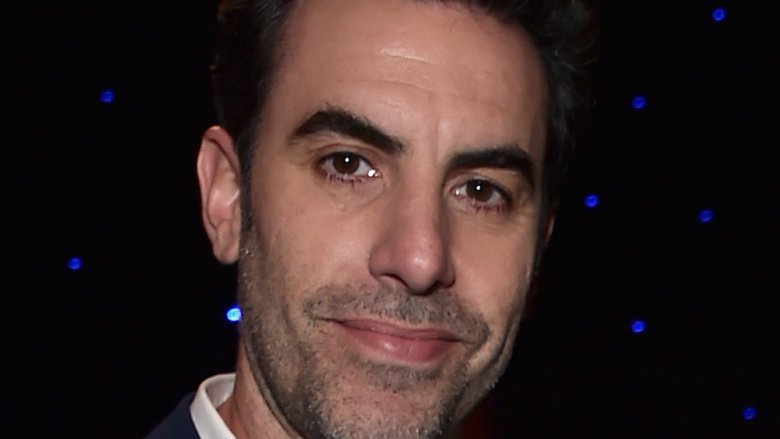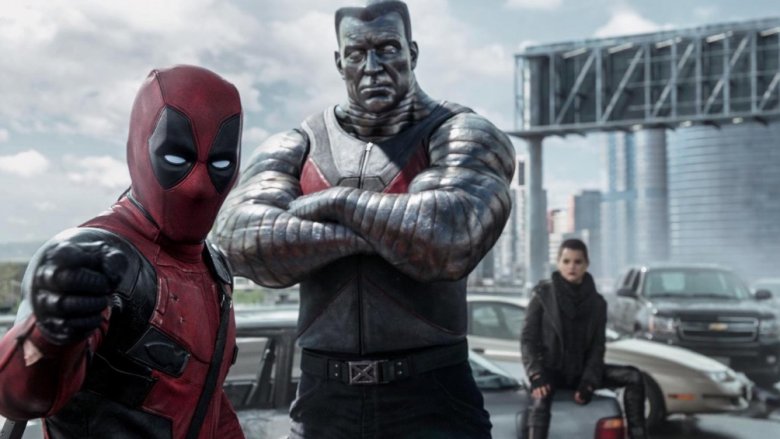Films Banned Around The World That You've Probably Seen
We tend to define a movie's success mostly in terms of how it performs in U.S. theaters, but Hollywood depends on more than just filling seats here at home — in fact, films increasingly live or die by how well they do overseas. For example, Pacific Rim proved popular enough around the world to convince the studio to greenlight a sequel, despite a comparatively poor domestic box office gross. Some films even have scenes added or removed to better their chances of connecting with moviegoers in other countries.
Still, while Hollywood is becoming increasingly aware of global audiences and their needs, there are plenty of movies that simply don't go over well in certain countries, and some of your favorite films have been banned in other parts of the world for a multitude of occasionally quite surprising reasons. From unanticipated cultural insensitivity to uncomfortable reminders of real-life violence, here are films that were banned around the world — and you've probably seen them anyway.
New Zealand has no zeal for Mad Max
When it comes to fast cars, brutal violence, and convincing depictions of a post-apocalyptic world, it doesn't get much better than 1979's Mad Max. The debut feature of director George Miller (Babe 2: Pig in the City, Happy Feet), Mad Max is a violent journey through the Australian outback that made leading man Mel Gibson a star and fueled a "guzzoline"-powered franchise. Surprisingly, the film didn't fare as well in its neighboring country, New Zealand. In fact, it was banned outright until 1983, a full two years after the sequel was released.
At the time, New Zealand had seen some of the worst gang violence in its history erupt in the streets, which made Mad Max very timely and also very difficult to watch. Some researchers have pointed to a scene in which Max's partner Goose is burned alive inside his vehicle as uncomfortably similar to the Moerewa riot, in which gang members attempted to throw a police officer into a burning van. Still, whether it was that specific scene that spurred the ban or just the high levels of violence and nihilism throughout, the movie wasn't welcome on the country's screens for years.
The Golden Circle closed in Cambodia
One might expect that the audience's biggest problem with Kingsman: The Golden Circle might be just how little screentime Channing Tatum has in the film compared to his trailer appearances. While that might hold true for American filmgoers, Bok Borak, the director of the Cambodian culture ministry's film department, took a decidedly different issue with the film's story. According to Borak, the film's use of Cambodia for the villain's headquarters contributed to the world's negative impression of Cambodian organized crime. Worse, the villainous hideout closely resembles Ta Prohm, a well-known temple in the country.
The film's use of Cambodia led to Borak completely banning any screenings. "It uses one of our temples as a place to produce drugs, to kill people cruelly," he explained. "We don't allow the screening of this film in our country." Still, considering that the Kingsman series is a pastiche of James Bond films, you could say that cultural insensitivity is just part of the genre.
Wonder where Wonder Woman is banned?
Graphic violence and cultural insensitivity are some of the most common reasons a film gets banned, but sometimes the problem lies less with the content of the movie and more with the people making it. Such was the case with 2017's Wonder Woman, a superhero movie that you probably weren't expecting to see banned by multiple Middle Eastern countries.
The reason for the ban? Israel-born star Gal Gadot's tour of duty with the Israeli Defense Force — a compulsory requirement for every Israeli citizen. Godot spent time in the IDF during the Israel-Hezbollah War in 2006, and a number of countries bore a grudge: Lebanon, Tunisia, and Qatar all banned Wonder Woman from theaters. Lebanon's ban was the least surprising — the country has a decades-long boycott against Israeli products and even bars Lebanese citizens from traveling to Israel or having contact with Israelis.
Zoolander didn't land in Malaysia and Singapore
Ben Stiller has a knack for playing bizarre narcissists, but his role as Derek Zoolander in Zoolander ranks among the most outlandish. From life-and-death catwalks to Zoolander getting brainwashed into trying to kill the Prime Minister of Malaysia, the film is dripping with absurd humor. Unfortunately, some of that humor didn't quite land with the Malaysian government, which banned the film from release in its country.
It wasn't just the assassination plot that put the film in hot water, it was the reason for it: the prime minister is targeted for death because he wants to put an end to Malaysian sweatshops. Making light of working conditions in the country ended up being unsurprisingly offensive to the Malaysian government, and the film was promptly banned. In an act of solidarity, neighboring country Singapore also banned the film. It isn't hard to understand how it all happened, but Zoolander is in good company — Singapore can be fairly fervent with its bannings.
No wolves allowed, Wall Street or otherwise
Director Martin Scorsese's The Wolf of Wall Street is packed with drug-filled rampages, grossly explicit sex scenes, and colorfully profane dialogue. The movie even holds the record for most uses of the f-word in a non-documentary, with over 500 instances in the finished film. Suffice it to say, it's excessive in the truest sense — and it's easy to understand how it could offend more easily provoked audiences anywhere in the world.
It's unsurprising, in other words, that the film was censored, edited, and banned in more than a few different places. Nepal and Malaysia banned Wolf of Wall Street outright, while India, the United Arab Emirates, and Lebanon all cut scenes. Singapore, interestingly enough, didn't ban the film, although it restricted showings to less than half a dozen theaters, which didn't keep it from coming in first at Singapore's box office despite — or maybe because of — the controversy. Ultimately, the film was a success, critically and commercially, so the bans didn't affect Scorsese's bottom line much.
Check yourself before you Shrek yourself
It can be very tricky to translate comedy into a different language; you have to match the style and tone of the original while replacing some of the more specific cultural references with ones that your audience is more likely to understand. Unfortunately, the Hebrew translation of Shrek 2 contained a joke so controversial that the film was banned until the line was removed.
In the original movie, a character threatens a very specific type of violence against another character by saying "Let's Bobbitt him," which references Lorena Bobbitt infamously castrating her husband. While translating the film into Hebrew, the translation team was worried that the reference was too obscure for Israeli audiences. They changed the line to "Let's do a David D'Or on him," a reference to an Israeli singer known for his high voice. D'Or didn't find the joke funny, and successfully managed to get a court order issued that banned the film from theaters until the offending line was removed.
Hunger Games fans hungry for release in Vietnam
There's a very fine line when it comes to depicting violence on screen. At which point does a symbolic representation bleed into a gruesome glorification of the thing you're trying to critique? While there isn't an objective answer to that question, it's true that the United States tends to accept violence in movies more readily than other countries. Vietnam, for instance, banned The Hunger Games for its violent imagery.
Despite the book's worldwide popularity, the film's Vietnamese premiere was delayed before it was ultimately banned from the country altogether. According to Nguyen Thi Hong Ngat, a member of the National Film Board, the decision was made because they felt it was just too much for Vietnamese audiences: "The bloody scenes may be acceptable in America, but in Vietnam, they're too violent and ruthless." The banning didn't seem to affect Vietnamese fans of the story, a few of whom went on record to say that they planned to watch the film in Cambodia or Singapore instead.
Blasphemy in the U.K.
Few British comedies have enjoyed the level of worldwide reach achieved by the work of the legendary U.K. troupe Monty Python. Still, while the group is known for their immortal jokes, some of their jokes about immortality were not so well-received; specifically, their 1979 film Monty Python's Life of Brian, which follows Jesus Christ's next door neighbor after he's mistaken for the Messiah.
The tongue-in-cheek jokes about Christianity and religious zeal were a stumbling block while securing funding (former Beatle turned film producer George Harrison ponied up the money) and became even more of a problem when the film was released. Religious groups across the U.K. criticized Life of Brian for its depiction of Christians, while Ireland and Norway banned it outright. Sweden would later mock Norway's ban by advertising the film as "the film so funny it was banned in Norway." Even Great Britain wasn't immune, as a few different provinces tried to ban the film — although this just encouraged moviegoers to see it in other towns. All in all, the controversy actually helped advertise the movie, proving once again that there's rarely any such thing as bad publicity.
Sacha Baron Cohen courting controversy
Some films are so willfully controversial that it's no surprise when they get banned in certain countries. Sacha Baron Cohen might be an expert on that, as his starring roles in 2006's Borat and 2009's Bruno prompted outcry worldwide. Both films follow outlandish characters in outrageous, often offensive scenarios. Borat was unsurprisingly banned from Kazakhstan for its offensive portrayal of the country, which you might have seen coming. The film was also banned in Russia (likely in support of its sister country) as well as multiple Arab countries. Bruno, on the other hand, fared slightly better: Ukraine banned the film because of "shots of sexual organs, homosexual intercourse and bad language," while Malaysia banned the film for pretty much the same reasons. All in all, the bans didn't seem to have much of an impact on either film's worldwide success.
Deadpool DOA in China
On its way to becoming the highest-grossing R-rated movie of all time worldwide, Deadpool faced a pretty significant handicap: it was denied release in China due to its extreme levels of violence. Despite the appeal of superhero movies overseas, the movie was deemed to be so consistently violent that there wasn't any way to censor the imagery while retaining the story's logic. While it's pretty impressive for the Deadpool filmmakers to have made such a successful movie without any Chinese revenue, it's a real shame for Chinese fans who wanted to see the Merc with a Mouth on the big screen.
Luckily for a few fortunate filmgoers, the movie eventually did premiere in China, although not as a full release. The film was shown during the Beijing Film Festival in 2018, where it appeared alongside other notable recent releases like Logan, Get Out, and The Grand Budapest Hotel.
